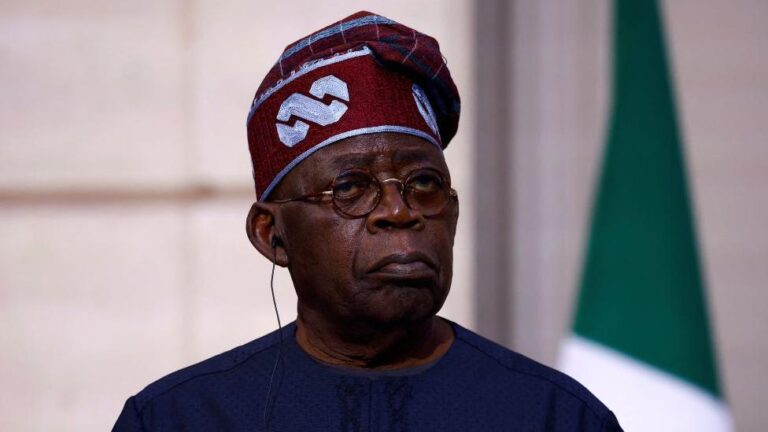For decades, Nigeria has carefully managed the country’s deep ethnic and religious diversity through an unwritten political code: presidential appointments should reflect the country’s pluralism. But critics say that under President Bola Ahmed Tinubu, that balance is under increasing threat.
Though Nigeria’s constitution mandates federal character in cabinet-level appointments, previous administrations often extended this principle to other strategic roles in government to promote inclusion and national unity.
The concern today? A growing sense of marginalization, especially from northern communities, over what they see as President Tinubu’s disproportionate preference for his Yoruba ethnic group in some of the country’s most powerful posts.
Scrutiny of Key Government Positions
While there are many roles a president fills, eight top appointments are widely viewed as the most influential. These include leadership of the Central Bank, NNPC (state oil firm), Police, Army, Customs, Intelligence Agency, EFCC (anti-graft agency), and Revenue Service. Though not officially ranked in the constitution, they collectively control the heart of Nigeria’s security and financial systems.
As of April 2025, all eight of these powerful positions are held by ethnic Yorubas—an unprecedented concentration under a democratic presidency, according to Professor Tijjani Naniya, a Nigerian historian.
“This level of dominance by one group is unlike anything we’ve seen before,” he remarked. “It risks alienating other communities and undermines faith in Nigeria’s democratic promise.”
Breaking from Past Patterns
Nigeria, home to over 250 ethnic groups, is broadly divided among the three largest: Hausa-Fulani (north), Igbo (south-east), and Yoruba (south-west). Since the return to democratic rule in 1999, political leaders had generally aimed for religious and ethnic diversity in appointments—most notably through Muslim-Christian presidential tickets.
However, President Tinubu, a southern Muslim, chose another Muslim—from the north—as his vice-presidential running mate. It was a controversial departure from precedent and signaled a shift that critics say has continued during his administration.
The recent appointment of Bayo Ojulari, a Yoruba and former Shell executive, to lead the NNPC, replacing a northern leader, has intensified public criticism. Observers say this move confirmed growing fears about exclusion among non-Yoruba groups.
A Look Back: Jonathan vs. Buhari vs. Tinubu
When comparing presidential appointments, Tinubu’s predecessors maintained more ethnic variation. During Goodluck Jonathan’s tenure (2010–2015), key appointments were split among various ethnicities, including Hausa, Fulani, Igbo, Calabar, Atyap, and Yoruba.
Muhammadu Buhari (2015–2023), a northern Fulani, was accused of northern bias. His top officials came predominantly from the Hausa, Kanuri, and Nupe groups—all northern ethnicities—though the composition was still more diverse than Tinubu’s current administration.
Political analyst Lawal Lawal noted, “This complete dominance by one group in key national positions under Tinubu is a new development. Past presidents, even when biased, never concentrated power this narrowly.”
Northern Backlash and Gender Gaps
Tinubu’s appointments have sparked discontent among northerners, especially Hausa-Fulanis, who feel pushed out of influential roles. The replacement of Abdulrasheed Bawa, a Hausa, as EFCC chairman—followed by his arrest and prolonged detention—raised additional suspicions. His successor, Ola Olukoyode, is Yoruba.
Notably, none of the eight top positions are held by women, a fact also drawing criticism in a country where gender representation in governance remains low.
“Nigeria belongs to all of us,” said Isah Habibu, a social affairs commentator. “No ethnic group should monopolize power.”
The Presidency Responds
President Tinubu’s aides have denied any ethnic bias. Daniel Bwala, one of his advisers, insisted that no constitutional rule defines any post as more important than the others, adding that appointments are being made based on merit and fairness.
“The president has followed constitutional guidelines. Important roles are filled by competent Nigerians from across the country,” Bwala said, citing the National Security Adviser from the northeast, the Defence Chief from the northwest, and the Secretary to the Government from the north-central zone.
Another aide, Sunday Dare, initially posted a breakdown suggesting that 71 northerners and 63 southerners had been appointed overall. But the post was later deleted after inconsistencies were highlighted, and no updated data has been released.
Voices from Within the Ruling Party
Tinubu’s appointment choices have faced pushback even from within his party, the All Progressives Congress (APC). Senator Ali Ndume, a senior APC figure from the north, publicly criticized the appointments as non-inclusive and inconsistent with the president’s “Renewed Hope” campaign promise of inclusivity.
“These decisions risk dividing the country further,” he said.
A Nation Still Grappling with Identity Politics
Despite calls for a merit-based system that transcends ethnicity, Nigeria remains deeply attuned to ethnic representation in politics. Professor Naniya believes lasting change will require consistent fairness over time.
“If the next few presidents make appointments that truly reflect Nigeria’s diversity, public perception may shift,” he said. “But we’re not there yet—it takes leadership and long-term commitment.”

